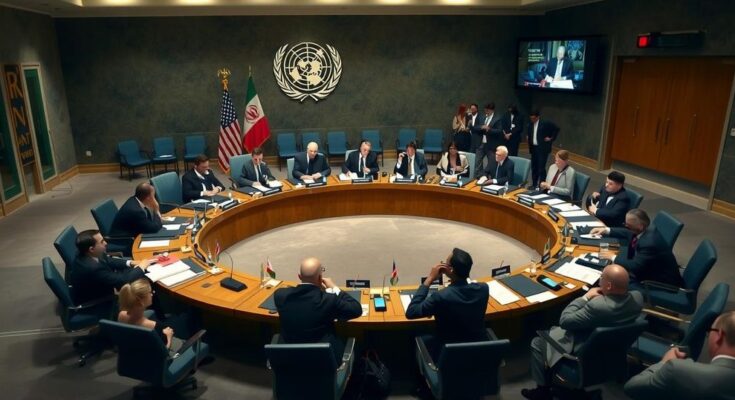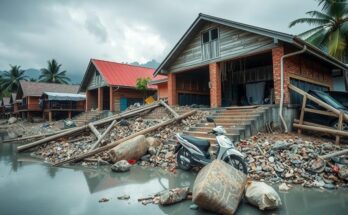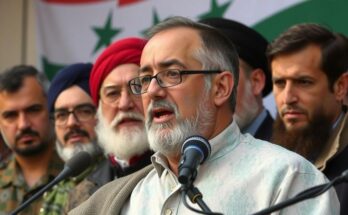The UN Security Council is scheduled to hold an emergency meeting following Iran’s request after Israel’s airstrikes on Iranian military sites and further violence in Lebanon. Iran asserts it will respond to Israel’s attacks, while Iraq condemns Israel’s use of its airspace for these strikes. The meeting aims to address the escalating tensions in the Middle East, which include casualties and military actions affecting civilians in the area.
In light of escalating tensions following military actions in the Middle East, the United Nations Security Council is set to conduct an emergency meeting at the request of Iran, endorsed by China, Algeria, and Russia. This meeting comes on the heels of Israel’s airstrikes against Iranian military installations, which were executed in retaliation for an earlier attack attributed to Iran on October 1. Iranian officials have asserted their intention to utilize all available means to respond to these hostilities, signaling a potential increase in regional conflict. Meanwhile, recent Israeli strikes in Lebanon have resulted in at least five fatalities and numerous injuries, further complicating the humanitarian situation in the region. The development has sparked a diplomatic backlash, with Iraq officially condemning Israel’s use of its airspace to execute attacks against Iran. In a public statement, Iraqi government spokesperson Bassim Alawadi denounced what they termed a “blatant violation of Iraq’s airspace and sovereignty.” Furthermore, Hossein Salami, commander of Iran’s Revolutionary Guards, issued a stark warning to Israel, foretelling “bitter consequences” for its military engagements against Iranian targets. The UN Security Council’s session is anticipated to address these pressing concerns and seek avenues to de-escalate the ongoing crisis. Notably, Iran’s President Masoud Pezeshkian has conveyed that while Tehran does not seek war with Israel, it will respond appropriately to perceived aggressions. Furthermore, recent statements from Iranian Foreign Minister Abbas Araghchi reveal he had received prior notifications regarding Israel’s strikes, indicating heightened tensions and anticipation of military actions between the parties involved. Additionally, Egypt has proposed a two-day ceasefire in the conflict, which aims to facilitate the release of hostages in Gaza amid the rising violence. As the situation develops, international observers remain vigilant regarding the potential for an expanded conflict, particularly given the complex interrelations among nations involved in the region.
The conflict between Israel and Iran represents a significant point of tension within the Middle East, marked by historical enmities and complex geopolitical alignments. Following a series of military encounters, Israel conducted airstrikes against Iranian military positions, purportedly in response to aggressive actions initiated by Iran. Iran has firmly stated its displeasure and threatened adequate retaliatory measures, prompting calls for international dialogue through the United Nations. The humanitarian fallout from military actions in both Lebanon and Gaza has compounded these issues, drawing responses from various governments and heightening calls for ceasefire and peace initiatives.
In summary, the requested emergency meeting of the UN Security Council underscores the urgent need for dialogue and resolution amid escalating military confrontations between Iran and Israel. The recent fatalities in Lebanon, Iraq’s diplomatic protest against Israel’s airspace violations, and Iran’s stern warnings indicate a dangerously volatile situation. It is paramount that the international community remains engaged in mediation efforts to prevent further escalation and promote stability in the region.
Original Source: www.france24.com




